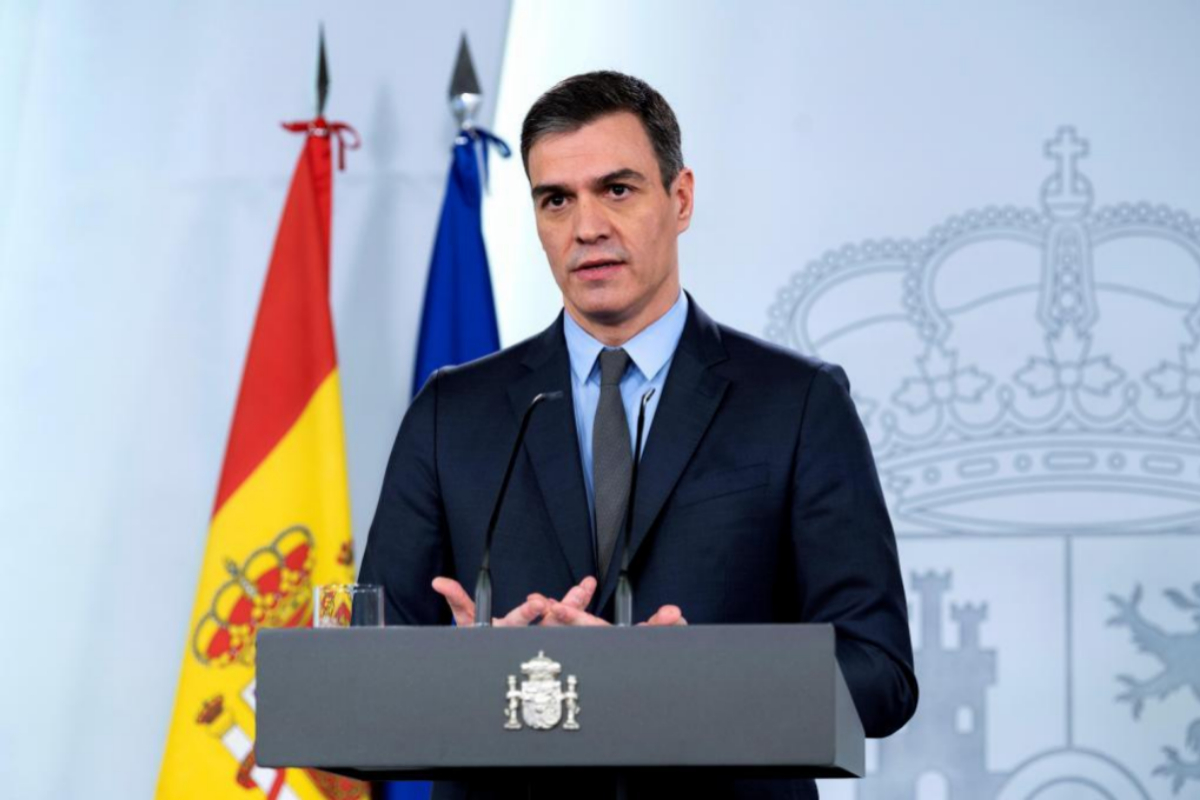- Labor: The workers of essential companies must move with a certificate that authorizes it
The Government will take this Tuesday the first step to grant a moratorium of up to six months in the payment of contributions to Social Security for self- employed workers and small and medium-sized enterprises (SMEs). Thus, it addresses one of the main claims that both groups have been making in recent weeks to alleviate the delicate situation in which they find themselves due to the economic collapse caused by the coronavirus and the measures approved for its containment.
As EL MUNDO has learned, this moratorium will be one of the proposals included in the new aid package to be approved this Tuesday by the Council of Ministers to expand the economic shock plan announced a few weeks ago by the president, Pedro Sánchez. Specifically, the decree includes "empowering Social Security to grant six-month moratoriums" for the self-employed and SMEs that meet the established requirements.
Once approved, Minister José Luis Escrivá will be in charge of developing the measure in the coming weeks based on the financial possibilities of Social Security and the impact that the crisis is causing on companies.
The Executive also plans to establish mechanisms to prevent those who are in difficulties due to Covid-19 from suffering a cut in basic supplies. The new package of measures will also enable resources so that they can return debts to suppliers flexibly.
In this way, the Government hopes to satisfy part of the demands that the self-employed and SMEs have made to it since the pandemic began. Both groups demand greater protection, in line with the rest of the companies and the measures adopted in countries such as France or the United Kingdom. "We do not ask not to pay the fee, what we are saying is that at the moment there is no liquidity and that it be suspended," Lorenzo Amor, president of the Association of Autonomous Workers (ATA), said in an interview on Monday with this newspaper.
Rental aid
The Council of Ministers will also give the green light on Tuesday to a series of measures aimed at alleviating the situation of tenants who are in a vulnerable situation.
The plan that Moncloa plans to carry out contemplates as a main measure to enable a line of loans channeled through banks and guaranteed by the State through the ICO (Official Credit Institute) . These are finalist loans that will only be granted to tenants who demonstrate a compromised situation to face the payment of the rent of their house while the current crisis lasts.
Sources from the Ministry of Transport, Mobility and Urban Agenda detail to EL MUNDO that the package of measures is aimed at private, non-commercial tenants, and that it contemplates different actions depending on the lessor being a "small owner" - those with less of eight rental properties, according to their classification- or a “large holder”, that is, investment funds, financial entities, real estate companies and asset management companies.
For tenants whose lessor is a small owner , the Executive will guarantee microcredit lines to be repaid in a period of between three and six years; For tenants whose landlord is a large holder , the Government will impose a moratorium of between one and four months on the rent payment to the owner.
Divergences
This is one of the points that has caused the most friction during the development of the proposals, since the department headed by José Luis Ábalos was in favor of establishing a debt repayment period of between three and 10 years, while the representatives of United Podemos in the Government wanted a definitive removal.
Ábalos himself has been blunt this Monday in ruling out that possibility. "We are not talking about cancellations, but incentives, debt restructuring ... circumstances referring to situations of vulnerability," he acknowledged during a press conference together with Defense Minister Margarita Robles .
The rental aid package will be completed with an automatic six-month extension for contracts that expire during the state of alarm and with the suspension of releases due to non-payment of the rent until the day that three months have elapsed since the end of said situation.
The issue of rents has been one of the most tensions has generated in recent days between the members of Unidas Podemos in the Executive and the rest of the ministers. In fact, the purple representatives tried last Thursday that the Delegate Commission approved a plan for suspension and remission of rents processed through the communities and several ministers, including Ábalos himself and the vice president of Economic Affairs, Nadia Calviño, opposed .
Calviño has also been one of the most temperate voices to include rent in aid plans, although he has finally found the way to make it viable. According to the vice president, her fears had to do with avoiding "collateral damage", because rent, "as everyone knows, is not like the mortgage, where the banks are on the other side of the citizens; in this case there are also small owners. There are people who depend on the rent payments to be able to live and pay their expenses, "he assured.
According to the criteria of The Trust Project
Know more- Coronavirus
- Covid 19
Annual resultsInditex postpones the dividend distribution for the coronavirus: "The conditions are not met"
CoronavirusThe US Navy will send a hospital ship to New York, which confirms a thousand new cases in one day
Markets Risk premiums rise 50% in one week and add pressure on another day of stock market declines

